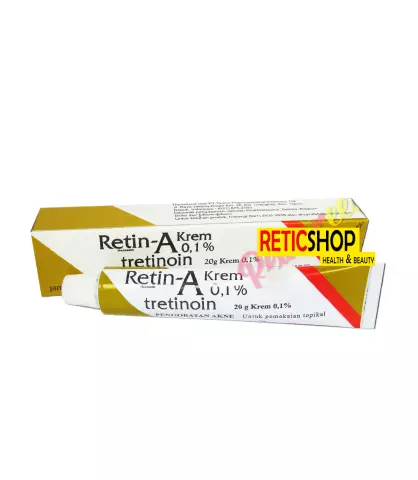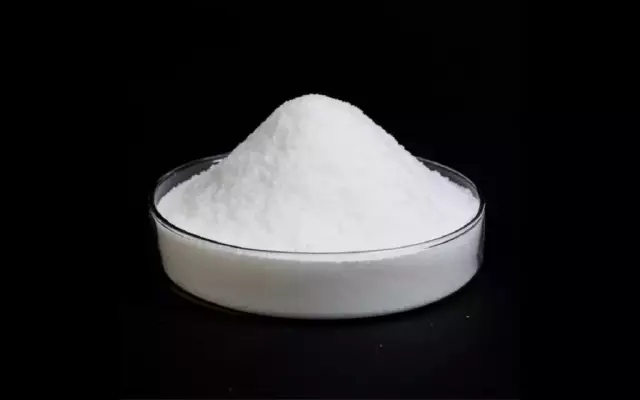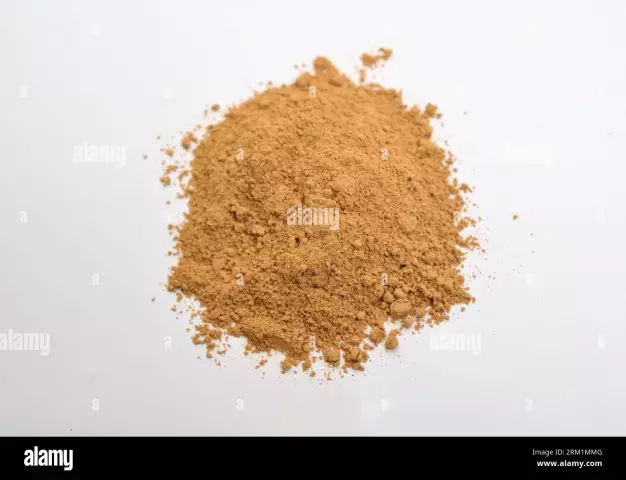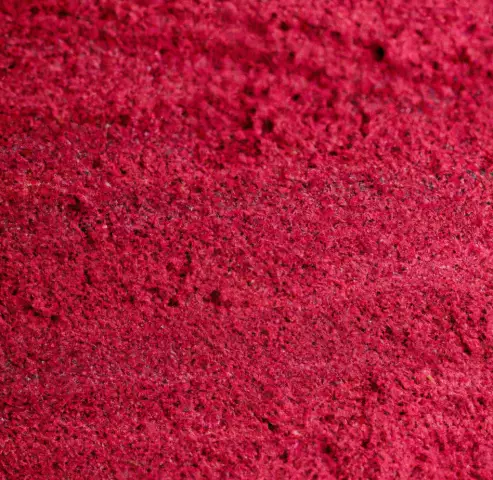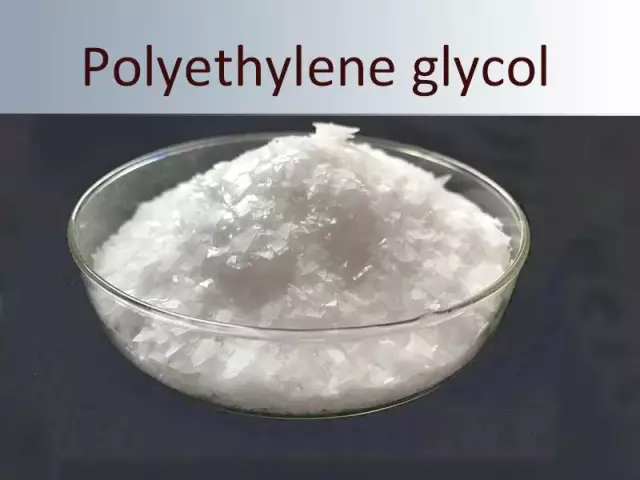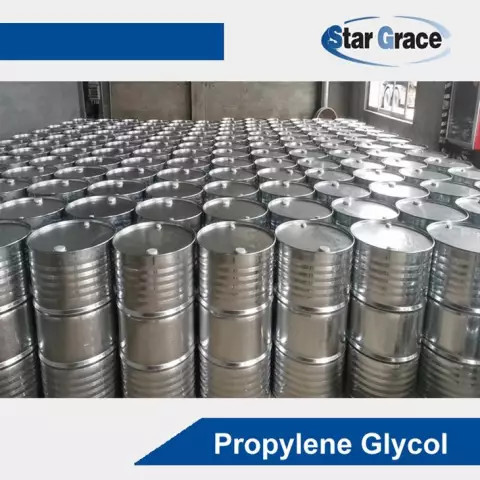- Author Rachel Wainwright wainwright@abchealthonline.com.
- Public 2023-12-15 07:39.
- Last modified 2025-11-02 20:14.
Dry cream

Powdered cream is a fine powder product that is produced by drying natural milk cream in a spray dryer.
Depending on their physicochemical, microbiological and organoleptic characteristics, dry cream of the first and second grades is distinguished. Powdered cream of the first grade is made from whole cow's milk, the second grade is made from vegetable fats.
Powdered cream composition
Most often, the composition of dry cream of vegetable origin includes coconut, palm and palm kernel oils. This product is made from oil containing vegetable fats, diluted with water and dehydrated using special production equipment. Also, milk protein is added to the mixture, which gives the product the aroma, color and taste of natural cream (sodium caseinate), stabilizers, acidity regulators, flavorings, emulsifiers and dyes. From the point of view of medicine, the composition of dried cream of vegetable origin is unsafe for health: trans-isomeric acids are poorly absorbed by the body and are carcinogens - substances that provoke the development of cancerous tumors. Unfortunately, they are included in the vast majority of industrial cakes, pastries and confectionery.
The advantages of powdered cream include low cost of manufacture, long shelf life, as well as the absence of fats and cholesterol, which favorably distinguishes powdered cream of vegetable origin from natural. Due to its chemical composition, the product mixes well with other products, dissolves in any liquids and does not curl up during cooking.
Nutritional value of dry cream
Natural dry cream differs from vegetable cream in a more valuable food composition. It includes choline (23.6 mg), vitamin PP (4.154 mg), vitamin E (0.09 mg), vitamin H (3.2 μg), vitamin C (3 mg), vitamin D (0.05 μg)), vitamin B1 (0.3 mg), vitamin B2 (0.9 mg), vitamin B5 (0.4 mg), vitamin B6 (0.05 mg), vitamin B9 (5 μg), vitamin B12 (0, 4 μg), vitamin A (0.05 mg), as well as minerals - tin (13 μg), strontium (17 μg), cobalt (0.8 μg), aluminum (50 μg), fluorine (20 μg), selenium (2 μg), chromium (2 μg), copper (12 kg), manganese (0.006 μg), zinc (0.4 mg), iodine (9 μg), sulfur (29 mg), phosphorus (543 mg), chlorine (110 mg), magnesium (80 mg), sodium (201 mg), calcium (700 mg), magnesium (80 mg).
The calorie content of 100 grams of dry cream is 267.3 kcal. Of them:
- Protein - 76 kcal;
- Fat - 378 kcal;
- Carbohydrates - 121 kcal.

The high calorie content of cream powder makes the product unsafe for overweight people.
Application of dry cream
Powdered cream is widely used in cooking, in the manufacture of bakery, confectionery and various drinks - for example, coffee.
You can easily prepare a cream for homemade baking based on dry cream. To do this, mix together 4 tablespoons of dry cream (you can taste it with chocolate), with two glasses of water, one egg yolk and 1 tablespoon of flour. Beat the resulting mass with a whisk or mixer, cool and use as a filling for making cakes and biscuits.
The harm of dry cream
The main negative effect of the product on the body is exerted by the preservatives and food additives included in the dry cream, which are, in fact, chemicals that are toxic to our body. Doctors-allergists do not recommend the use of powdered cream for people who have a predisposition to allergic reactions to food colors and preservatives.
Found a mistake in the text? Select it and press Ctrl + Enter.

